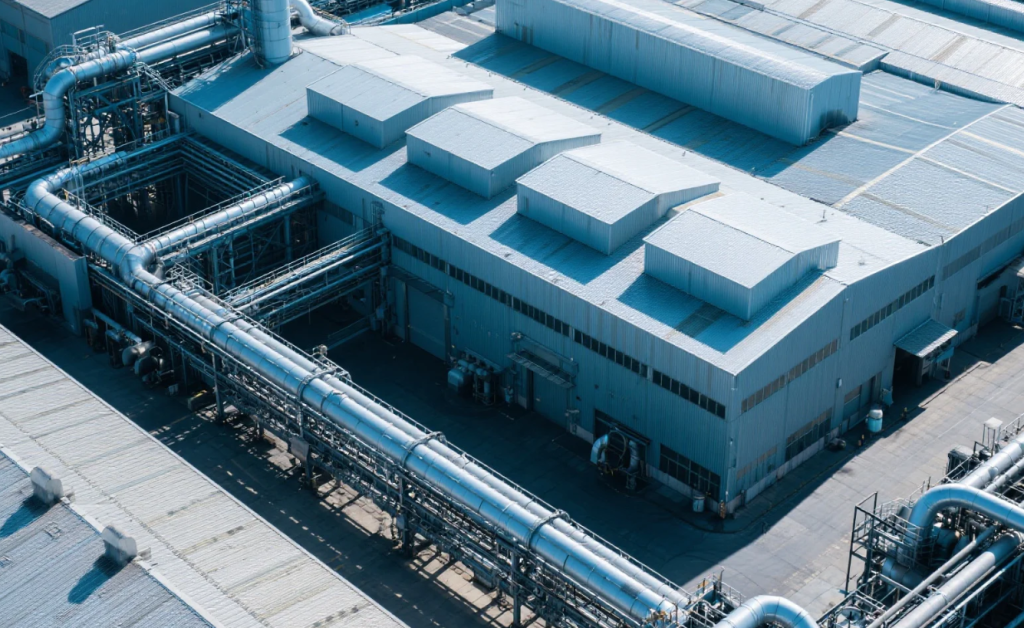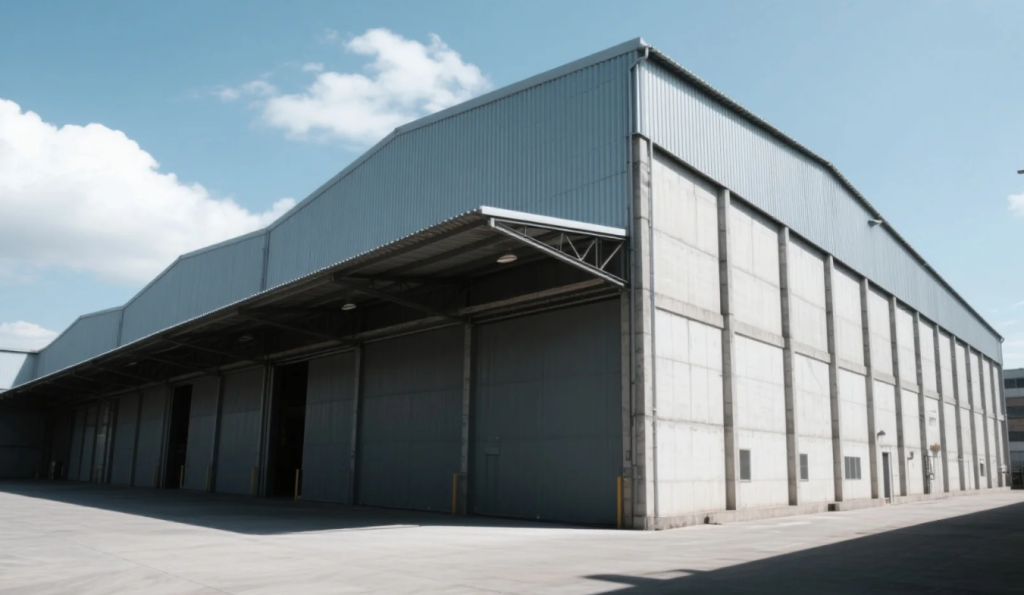Mastering Industrial Ownership: Freehold vs Leasehold Explained for Selangor Investors
Introduction
When acquiring factory space or industrial land in Selangor, one of the initial and most significant choices you will encounter is whether to opt for a freehold or leasehold property. This choice extends beyond mere ownership duration—it influences your long-term investment potential, development flexibility, financing alternatives, and even resale opportunities. Given that Selangor is one of Malaysia’s prominent industrial centers—featuring key areas such as Shah Alam, Klang, and Subang—grasping the practical distinctions between these two land titles is crucial for making informed and strategic decisions.
In this guide, we elucidate the true meanings of freehold and leasehold, how they impact buyers of factory and industrial land, and what factors you should contemplate before finalizing your agreement. Whether your goal is to establish a long-term presence or to achieve quick returns, this guide will assist you in making a confident and well-informed investment in Selangor’s flourishing industrial property market.
What is a freehold property?
A freehold title signifies that you possess the land and any buildings on it for an indefinite period. This ownership is not bound by time constraints, granting you the legal authority to transfer, sell, or bequeath the property to your heirs. In Malaysia, freehold properties are deemed more valuable due to the enduring nature of the ownership.
For buyers of industrial properties, freehold provides long-term security and flexibility. Generally, there are fewer limitations regarding redevelopment, extensions, or changes in usage (subject to zoning regulations). It is a favored choice for businesses intending to operate for generations or seeking to establish a long-term foundation.

Advantages of Freehold Property
- Full and permanent ownership: With a freehold title, the purchaser acquires total and enduring ownership of the land as well as any constructions erected upon it. There is no time limit, allowing the property to be inherited through generations or sold at any moment without the necessity of renegotiating with the State. This notion of permanence is particularly appealing to business proprietors who are considering long-term operations or legacy planning.
- Easier resale and transfer process: Freehold properties typically impose fewer limitations regarding the sale, transfer, or mortgaging of the property. In contrast to leasehold properties, there is no necessity for State approval, which minimizes administrative delays and legal obstacles. This also facilitates faster transaction timelines, thereby simplifying the process of liquidating assets or withdrawing from an investment.
- Greater flexibility for future development: With freehold, the purchaser enjoys complete freedom regarding land utilization and structural modifications, which is particularly attractive for enterprises intending to undertake significant expansions or construct tailored facilities. In contrast to leasehold properties that are subject to stricter State-imposed regulations, freehold owners possess wider latitude to modify, develop, or even subdivide the land.
Disadvantages of Freehold Property
- The purchase price is higher in comparison to leasehold options: Freehold industrial land typically commands a significantly higher upfront cost than leasehold alternatives, especially in strategic areas like Shah Alam, Klang, and Subang. For startups, SMEs, or capital-conscious investors, this higher investment requirement can become a major hurdle—limiting access to prime locations or larger land parcels.
- Full responsibility for maintenance and repairs: As the full owner of a freehold property, the entire responsibility for repairs, renovations, and maintenance rests solely with the owner. This encompasses structural maintenance, necessary compliance improvements, and any upgrades that may be needed over time. In contrast to leasehold agreements, where certain obligations might be distributed or governed by the State, freehold owners are required to independently allocate funds and strategize for all expenses related to the property – thereby increasing their long-term operational and financial responsibilities.
- Possibility of compulsory acquisition by the State: While freehold ownership provides long-term security, it does not ensure complete immunity from government intervention. According to Malaysia’s Land Acquisition Act 1960, the State possesses the legal authority to acquire freehold land for public purposes—such as infrastructure projects (e.g., MRT, highways) or national economic development. In these instances, the property owner must surrender the land and will receive compensation based on the current market value, as determined by valuers appointed by the government. Although compensation is offered, this still introduces a degree of risk and disruption for long-term property owners.
What is Leasehold?
A leasehold title indicates that you possess the land or property for a specified period—typically 30, 60, or 99 years. Upon the conclusion of the lease term, ownership reverts to the State government, unless you submit an application and pay for an extension. Leasehold properties are subject to additional administrative regulations and necessitate consent for various transactions.
In the context of industrial use, leasehold arrangements are frequently more economical and accessible, particularly in high-demand areas such as Shah Alam or Klang, where freehold land is limited. This makes it appealing for investors or businesses seeking a short- to mid-term strategy with a lower initial investment and the potential for higher returns.

Advantages of Leasehold Property
- Reduced acquisition cost in comparison to freehold: Leasehold properties typically offer a more economical option than their freehold equivalents, serving as a viable entry point for startups, small and medium enterprises, or investors with constrained financial resources. This decreased expense enables purchasers to obtain more extensive land parcels or superior locations for the same level of investment, particularly in high-demand areas such as Shah Alam, Klang, and Subang.
- Increased potential for rental yield: Leasehold properties generally provide higher rental yield percentages due to their lower acquisition costs, especially in regions with strong demand. For investors prioritizing cash flow and return on investment, leasehold assets can yield appealing short-to-medium term profits, particularly when situated in a strategic location and possessing a lengthy lease duration.
- Modern developments with better facilities: To stay competitive, developers of leasehold projects frequently incorporate superior infrastructure, enhanced security, and additional value features such as broader road access, high-ceiling factories, environmentally certified buildings, or improved drainage systems. These attributes are appealing to contemporary businesses and render leasehold options more enticing for operational efficiency.
Disadvantages of Leasehold Property
Limited ownership period with possible depreciation: Leasehold properties are maintained for a specified duration—usually 30, 60, or 99 years—and ownership returns to the State upon expiration unless it is renewed. As the lease term decreases, the market value of the property generally diminishes, rendering it less appealing for resale or long-term investment.
Requires State approval for sale and transfer:
Unlike freehold properties, leasehold transactions typically entail extra administrative steps. Owners are required to secure consent from the State Authority prior to selling or transferring ownership, which may lead to extended processing times and possible delays in finalizing transactions.
Costly and complex lease renewal process: Renewing a lease requires the payment of a premium determined by the current market value of the land, its size, and the remaining duration of the lease. This expense can be significant and may impose a financial strain on property owners approaching the conclusion of the lease term. Additionally, delays in the renewal process could lead to an increase in the payable premium or the possibility of non-renewal if the land is needed for public purposes.
Tips for Factory & Land Buyers
Check title status before purchase: Before finalizing a property acquisition, it is essential to confirm if the land is classified as freehold or leasehold. This detail is explicitly mentioned in the Land Title certificate (often referred to as the “geran”), and it plays a crucial role in determining long-term ownership rights, resale opportunities, and legal responsibilities.
Understand lease renewal terms and costs: For properties held under lease, it is essential to comprehend the State’s regulations regarding lease extensions. Renewal premiums can be significant and must be included in your financial planning, particularly if the lease has less than 60 years remaining. Proactive planning can help avoid unexpected issues and facilitate a smoother resale process in the future.
Select according to your business vision: Consider purchasing freehold property if your business strategy entails long-term, legacy use or if you intend to make substantial investments in facility customization or expansion. Conversely, leasehold properties are suitable for budget-conscious buyers, temporary operations, or investors seeking higher short-term returns.
Prioritize location and accessibility: Although the type of title is significant, the value and operational appropriateness of a property are also affected by location factors such as infrastructure, transportation access, workforce availability, and connectivity. Opt for properties that meet your logistical and operational needs—even if this requires choosing leasehold options in prime locations.
Conclusion: Make Title Tenure Part of Your Strategy
Choosing between freehold and leasehold property should be viewed as a strategic decision tailored to your business objectives, rather than a universal solution.Freehold provides long-term security, complete ownership rights, and the potential for consistent capital appreciation—making it ideal for businesses that prioritize stability, future growth, or generational succession. On the other hand, leasehold offers a more affordable option with appealing rental yields and access to contemporary developments in high-demand industrial areas, which makes it appropriate for shorter-term or yield-oriented strategies.
Regardless of whether you are purchasing land for a factory, warehouse, or logistics center, it is crucial to assess both title types in relation to your operational requirements, financial framework, and growth strategies. With thorough due diligence and a comprehensive understanding of the implications of tenure, either choice can become a valuable asset in your industrial investment portfolio.
If you’re ready to explore industrial properties in Selangor or need expert guidance on selecting the right title for your needs, our team is here to help—from title verification to site selection and documentation.

